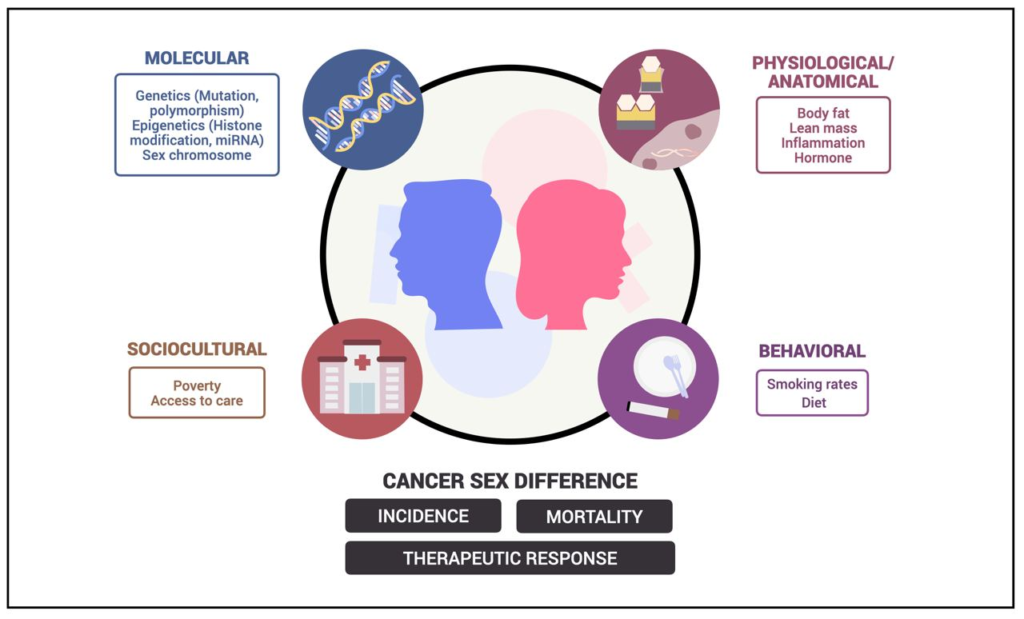Review explores how genetic and social factors contribute to the development of gender-based cancer differences among Asians
30 Jan 2024

Cancer is a leading cause of mortality and morbidity globally. Sex differences in cancer are evident in death rates and treatment responses in several cancers. Asian patients have unique cancer epidemiology influenced by their genetic ancestry and sociocultural factors in the region. In this review, we show molecular associations that potentially mediate sex disparities observed in cancer in Asian populations. Differences in sex characteristics are evident at the cytogenetic, genetic, and epigenetic levels mediating processes that include cell cycle, oncogenesis, and metastasis. Larger clinical and in vitro studies that explore mechanisms can confirm the associations of these molecular markers. In-depth studies of these markers can reveal their importance as diagnostics, prognostics, and therapeutic efficacy markers. Sex differences should be considered in designing novel cancer therapeutics in this era of precision medicine.
The narrative review highlights the existing knowledge and evidence on the molecular roles of sex differences in cancer among Asians. This would serve as basis for research generation with the gains and gaps on the current literature provided. This narrative review tackles the unique genomic and social factors that influence the development of sex differences in cancer among Asians. The study focuses on associations of molecular evidences that can influence sex differences in cancer while also discussing social determinants of health, alongside cancer epidemiology in Asian cohorts. Through this review, a multifactorial and interconnected assessment of existing cancer literature in Asian populations can help develop gaps that future studies may target for specific interventions in the incidence and mortality of cancer worldwide.
Authors: Eric David Ornos, Leslie Faye Cando, Charlene Divine Catral, Elin Paul Quebral, Ourlad Alzeus Tantengco, Ma. Veronica Pia Arevalo (all from the College of Medicine, University of the Philippines Manila) and Edward Christopher Dee (Memorial Sloan Kettering Cancer Center, New York)
Read the full paper: https://www.cell.com/iscience/fulltext/S2589-0042(23)01178-1?_returnURL=https%3A%2F%2Flinkinghub.elsevier.com%2Fretrieve%2Fpii%2FS2589004223011781%3Fshowall%3Dtrue
